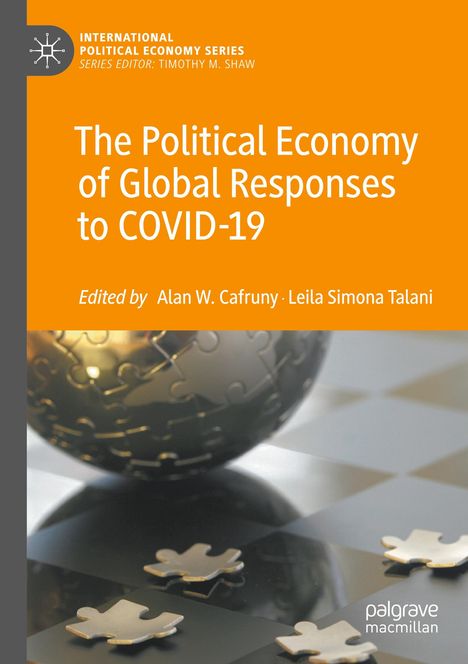The Political Economy of Global Responses to COVID-19
The Political Economy of Global Responses to COVID-19
Buch
- Herausgeber:
- Leila Simona Talani, Alan W. Cafruny
- Verlag:
- Springer International Publishing, 03/2024
- Einband:
- Kartoniert / Broschiert, Paperback
- Sprache:
- Englisch
- ISBN-13:
- 9783031239168
- Artikelnummer:
- 11811897
- Umfang:
- 344 Seiten
- Nummer der Auflage:
- 2023
- Auflage:
- 2023
- Gewicht:
- 446 g
- Maße:
- 210 x 148 mm
- Stärke:
- 19 mm
- Artikelnummer:
- 11811897
- Erscheinungstermin:
- 27.3.2024
- Hinweis
-
Achtung: Artikel ist nicht in deutscher Sprache!
Weitere Ausgaben von The Political Economy of Global Responses to COVID-19 |
Preis |
|---|
Klappentext
This book seeks to identify the reasons why some countries were more efficient and effective than others in responding to the COVID 19 pandemic, and why the global community failed to coalesce. What are the political determinants of the different state responses to the pandemic? Why was scientific advice rejected or ignored in many countries? What has been the role, respectively, of neoliberalism, populism, and authoritarianism in the making of Covid-19 policy? What role have each of these factors played in the uneven and clearly inadequate global response to the pandemic?In an effort to understand why some states failed to handle the pandemic properly, some of the literature suggests that populism is at the root of the current failure of international co-operation. The global financial crisis of 2008-10 triggered significant cooperation within the G-20, led by the combined efforts of the United States and China. These forms of cooperation have clearly disappeared in the context of the pandemic, not only with respect to economic policy but also in public health and management. The authors of this volume link the different state responses to the pandemic-- from its inception to the start of the vaccination campaign, and to the political regimes prevailing in each. In particular, the present volume focuses on a distinction between the responses of neo-liberal regimes, populist regimes and authoritarian ones.


